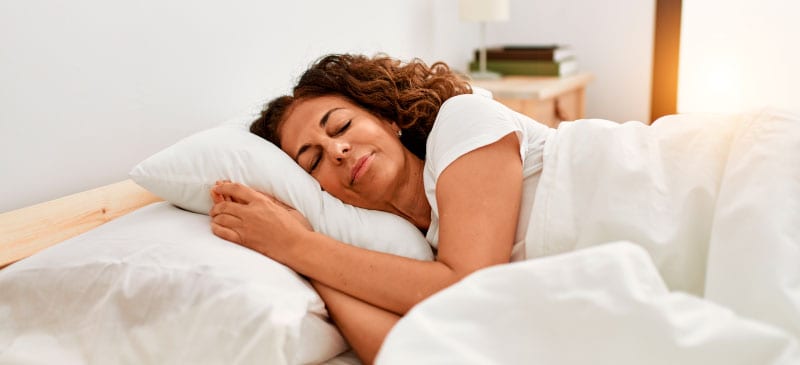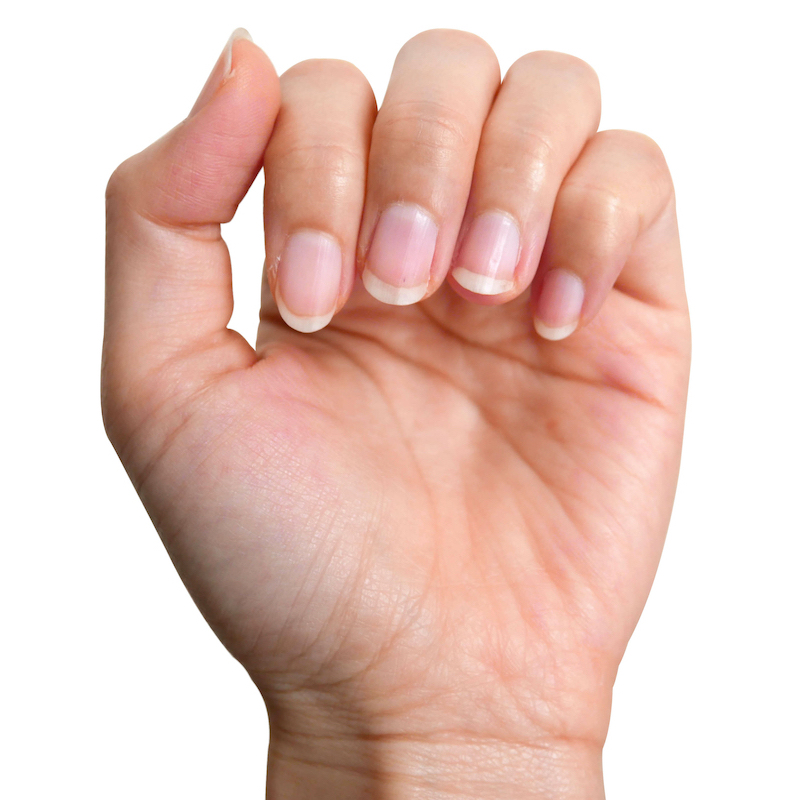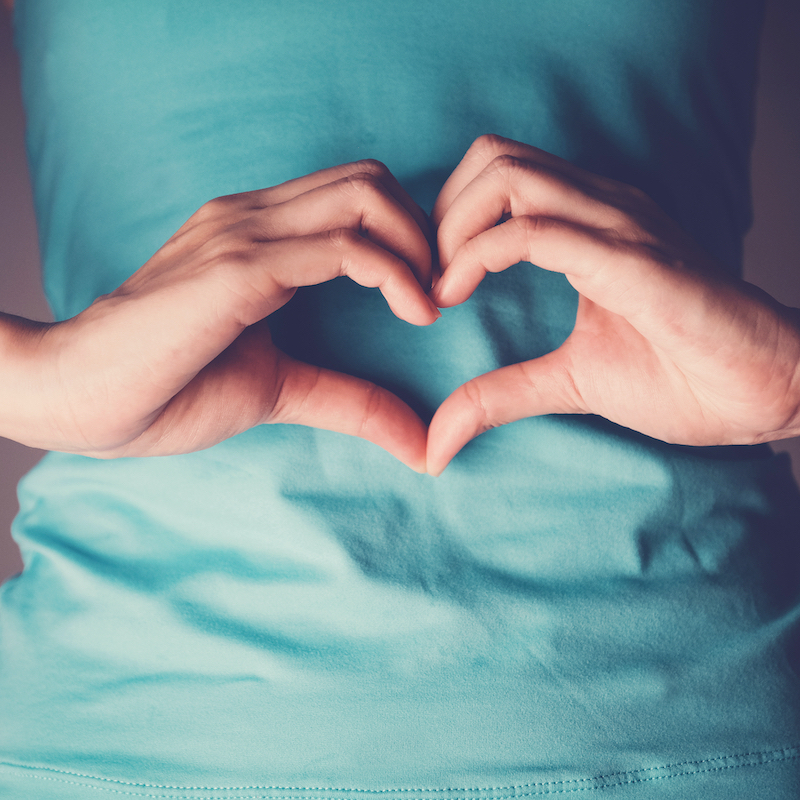This Dr. Axe content is medically reviewed or fact checked to ensure factually accurate information.
With strict editorial sourcing guidelines, we only link to academic research institutions, reputable media sites and, when research is available, medically peer-reviewed studies. Note that the numbers in parentheses (1, 2, etc.) are clickable links to these studies.
The information in our articles is NOT intended to replace a one-on-one relationship with a qualified health care professional and is not intended as medical advice.
This article is based on scientific evidence, written by experts and fact checked by our trained editorial staff. Note that the numbers in parentheses (1, 2, etc.) are clickable links to medically peer-reviewed studies.
Our team includes licensed nutritionists and dietitians, certified health education specialists, as well as certified strength and conditioning specialists, personal trainers and corrective exercise specialists. Our team aims to be not only thorough with its research, but also objective and unbiased.
The information in our articles is NOT intended to replace a one-on-one relationship with a qualified health care professional and is not intended as medical advice.
Sleep Hygiene Tips and Best Practices for a Good Night’s Sleep
July 10, 2025

Sleep hygiene refers to a set of practices and habits that can help improve the quality and duration of sleep and prevent insomnia. Good sleep hygiene can lead to better sleep patterns, increased daytime alertness and overall improved well-being.
We also know that sleep is crucial to overall health, which is why it’s no surprise sleep hygiene is becoming one of the top wellness trends.
What is sleep hygiene?
As mentioned above, sleep hygiene refers to a set of practices and habits that are designed to promote good, restful sleep. These practices aim to improve the quality and duration of sleep, as well as reduce the likelihood of sleep disturbances and sleep-related disorders, such as sleep deprivation.
Sleep hygiene is essential for maintaining overall health and well-being since adequate and restorative sleep is crucial for physical and mental health.
How to practice good sleep hygiene
Practicing good sleep hygiene means cultivating habits that support consistent, quality sleep and promote a healthy circadian rhythm. Optimal sleep hygiene is not identical for everyone, but there are some things that typically can help most people get a good night’s sleep.
Here are some sleep hygiene tips and natural sleep aids to help you get a restful sleep:
1. Stick to a consistent sleep schedule
Try to go to bed and wake up at the same time every day, even on weekends. This helps regulate your body’s internal clock and promotes better sleep.
This consistency strengthens the sleep-wake cycle, making it easier to fall asleep and wake naturally. Disruption (e.g., sleeping in late) confuses the brain’s sleep signals, often causing unrest and grogginess.
2. Create a bedtime routine
Develop a relaxing pre-sleep routine to signal your body that it’s time to wind down. This may include activities like reading a book, taking a warm bath or practicing relaxation techniques, like meditation.
A calming pre-sleep ritual gives your body conditioned cues to wind down. This routine reduces brain activity and stress hormones by signaling the transition from wakefulness to sleep, helping you drift off faster and sleep more deeply.
3. Make your sleep environment comfortable
Ensure your bedroom is cool, dark and quiet. Consider using blackout curtains, earplugs or a white noise machine to block out any disruptive elements.
A neutral, sound-free, dark and cool room minimizes external stimuli that can interfere with sleep stages. Ideal bedroom conditions support deeper, more continuous rest, preventing micro‑awakenings and excluding light or temperature shifts that could fragment sleep.
Invest in a comfortable mattress and pillows that support your sleeping posture. This can prevent discomfort and improve the quality of your sleep.
Supportive mattresses and pillows keep body alignment correct. Physical comfort is vital, because discomfort leads to micro‑awakenings.
Quality bedding and proper ergonomic support help reduce pressure points, improving sleep depth and reducing pain.
4. Limit exposure to screens before bedtime
The blue light emitted by screens can interfere with your sleep. Avoid using electronic devices like smartphones, tablets and computers at least an hour before bedtime.
Blue light suppresses melatonin, the hormone that signals when it’s time to sleep. Turning off screens one to two hours before bed helps melatonin production proceed naturally, improving both sleep quality and the ease of falling asleep.
5. Watch what you eat and drink
Avoid large meals, caffeine and alcohol close to bedtime. These substances can disrupt your sleep patterns and cause discomfort.
- Heavy meals can lead to indigestion and discomfort at night.
- Caffeine stays active for hours, blocking sleepiness.
- Alcohol may help you fall asleep but fragments your sleep and reduces REM quality.
6. Get regular exercise
Engaging in regular physical activity during the day can promote better sleep. Moderate daytime exercise reduces stress and fatigue, making it easier to dose off.
However, try to avoid intense exercise close to bedtime, as it may make it difficult to fall asleep. Working out within two to four hours of bedtime raises body temperature and alertness, which can delay sleep onset.
7. Limit daytime naps
While short power naps can be beneficial (30 minutes or less), long or irregular daytime naps may interfere with your nighttime sleep.
Short naps can boost alertness without affecting nighttime sleep, but longer or late-afternoon naps decrease your sleep drive, making it harder to fall asleep at night.
8. Manage stress
High levels of stress and anxiety can disrupt sleep. Stress increases cortisol and brain activity, delaying sleep onset and messing with sleep quality.
Practice relaxation techniques, such as meditation, deep breathing or yoga, to help reduce stress before bedtime. Implementing relaxation strategies calms the nervous system and supports a smoother transition to sleep.
9. Limit liquids before bedtime
Reducing your liquid intake before going to bed can help minimize nighttime awakenings to use the bathroom.
Drinking too much before sleep can cause nocturia (waking to pee), which breaks sleep continuity. Minimizing fluid intake one to two hours pre-bed helps maintain uninterrupted rest cycles.
10. Avoid clock-watching
If you have trouble falling asleep, constantly checking the time can add to your stress. This mental strain triggers adrenalin and cortisol release, making it harder to fall or stay asleep.
Turning your clock away from combats this stress loop.
11. Seek natural light exposure during the day
Exposure to natural light during the day can help regulate your body’s sleep-wake cycle. Daylight, especially morning light, cues your circadian rhythm to stay alert.
This strengthens your sleep-wake cycle and encourages nighttime melatonin production. Proper daytime light exposure helps you feel sleepy as evening approaches.
Spend time outdoors, or keep your curtains open to get some daylight.
12. Don’t smoke
Nicotine is a stimulant that can make it harder to fall asleep and stay asleep. Smoking, especially in the evening, can increase nighttime awakenings, reduce REM sleep and lead to lighter, fragmented sleep.
Quitting smoking not only improves overall health, but also enhances sleep quality by reducing the stimulating effects of nicotine and supporting better oxygen flow during rest.
13. Limit in-bed activity
Reserve your bed for sleep and intimacy only. Using your bed for other activities, like watching TV, scrolling on your phone, eating or working, can confuse your brain, weakening the mental connection between your bed and sleep.
This habit, called stimulus control, helps train your body to associate being in bed with feeling sleepy and falling asleep faster.
14. Sleep when you’re sleepy
Avoid forcing yourself to sleep when you’re not tired. Going to bed too early can lead to frustration, restlessness and negative associations with bedtime.
Instead, wait until you feel naturally sleepy. Yawning, heavy eyelids and low energy are good indicators.
This helps sync your sleep cycle with your body’s natural circadian rhythm and leads to more efficient, deeper sleep.
15. Take a bath
Taking a warm bath or shower about 90 minutes before bed can help you fall asleep faster. The warm water raises your body temperature slightly, and the subsequent cooling after you get out signals your body to prepare for sleep.
This drop in core temperature helps activate melatonin production and supports the natural transition into sleep.
16. Keep a sleep diary
Tracking your sleep habits in a diary can help you identify patterns, triggers and areas that need improvement. Record your bedtime, wake time, sleep quality, caffeine or alcohol intake, exercise, and daily stress levels.
Reviewing your diary can help you notice behaviors that interfere with sleep, enabling you to make more informed adjustments and build a healthier sleep routine.
You can track your sleep routine and patterns with a sleep app as well. Adjust habits in small steps, and give each change a week or two to evaluate its impact.
Collectively, these sleep hygiene guidelines align with your biological clock, reduce external and internal disruptions, and foster an environment that supports your body’s natural sleep cycles. While many are effective individually, research has shown the biggest gains come from applying multiple habits consistently.
Frequently asked questions
How many hours of sleep do I really need?
Adults generally need seven to nine hours per night. Children and teens require more, matched to their developmental stage.
Listen to your body. If you’re still tired during the day, you likely need more.
Is it bad to take naps during the day?
Short power naps (about 20-30 minutes) in the early afternoon can help if you’re tired. But longer or late-day naps may disrupt nighttime sleep.
Why am I so tired but can’t fall asleep?
This “tired but wired” feeling often comes from stress, irregular routines, mental chatter or hormonal imbalances. Try calming bedtime routines, limiting screen time, journaling or relaxation techniques.
What can I do if I wake up in the night and can’t fall back asleep?
Experts recommend the “get out of bed” rule: If you can’t fall asleep after roughly 20 minutes, leave the bedroom, do a quiet relaxing activity until sleepy and then return. Also avoid clock-watching, which can increase anxiety.
How long should it take to fall asleep?
Ideally, you should drift off within 15-20 minutes. If it regularly takes longer, review your sleep hygiene (screens, stress, caffeine, temperature), and consider making adjustments.
Can caffeine and alcohol affect my sleep?
Yes. Avoid caffeine at least six hours before bed, as it stays in your system. Alcohol may make you sleepy initially but fragments your sleep later.
What is the 10-3-2-1-0 rule for sleep?
This is a popular evening guide that involves:
- No caffeine 10 hours before bed
- No food/drink (except water) 3 hours prior
- Stop work 2 hours before bed
- No screens 1 hour before bed
- 0 snooze in the morning
How should I wind down before bed?
Build a consistent pre-bed routine: Dim lights, avoid screens, stretch or read, and practice relaxation (e.g., deep breathing or meditation). Make the bedroom cool and quiet and clear of clocks or devices.
When should I see a sleep specialist?
If you experience persistent insomnia, loud snoring, daytime fatigue, waking gasping for air or other unusual symptoms, consult a specialist. CPAP may be needed for apnea or CBT‑I for chronic insomnia.
Is sleep hygiene enough to fix my sleep problems?
Good sleep hygiene is essential but may not cure serious or chronic issues. Conditions like insomnia or sleep apnea often require additional treatments, such as CBT-I, medical evaluation or devices like CPAP.
What exactly is “sleep hygiene”?
Sleep hygiene refers to a collection of behavioral and environmental practices designed to improve both the quality and duration of sleep. Examples include regular sleep schedules, limiting screen time before bed and creating a restful bedroom environment.
How long does it take to see results from improving sleep hygiene?
Improving your sleep hygiene tends to gradually regulate your sleep-wake cycle. While some might notice better sleep within a few days, the full benefits often emerge over several weeks as habits consolidate.
Can sleep hygiene alone cure insomnia?
Sleep hygiene is an important foundation but often isn’t enough to eliminate chronic insomnia. Experts typically recommend integrating it alongside other treatments, like cognitive behavioral therapy, for persistent sleep difficulties.
What should my bedtime routine include?
A calming pre-sleep routine might involve reading, taking a warm bath, practicing deep breathing or relaxation exercises. The goal is to signal to your body that it’s time to unwind.
How much screen time is too much before bed?
It’s best to avoid electronic devices (like phones, tablets or computers) at least one hour before bedtime. The blue light they emit can suppress melatonin and delay sleep onset.
Should I exercise before bed?
Regular daytime exercise supports better sleep. However, intense workouts close to bedtime may make it harder to fall asleep, so aim to finish vigorous exercise a few hours before lights-out.
How should I manage late-night eating, caffeine or alcohol?
Try to avoid:
- Heavy meals within a couple of hours of bedtime
- Caffeine (coffee, tea, chocolate) late in the day
- Alcohol near bedtime (it may help you fall asleep but fragments sleep later)
What’s the ideal sleep environment?
Create a cool, dark and quiet bedroom. Consider blackout curtains, earplugs, white noise machines, and a comfortable mattress and pillows. Hiding the clock can also help reduce sleep anxiety.
When should I seek medical advice for sleep issues?
If you consistently struggle to fall asleep, wake frequently or still feel tired despite practicing good sleep hygiene, it’s wise to consult a healthcare professional. Sleep disorders like sleep apnea or insomnia may need expert evaluation.
Conclusion
- Setting up your sleep schedule is the first step in practicing proper sleep hygiene. Make sure you have a fixed wakeup time, you prioritize sleep, make gradual adjustments as needed and avoid napping too much.
- Another sleep hygiene tip is to follow a nightly routine. This includes keeping your routine consistent, making sure you give yourself time to wind down before sleeping, dimming your lights and unplugging from electronics.
- It’s also a good idea to try different relaxation techniques before going to bed, and don’t try to go to bed before you’re tired. In addition, if you head to bed but can’t fall asleep within 20 minutes or so, get up and try other methods of winding down until you’re sleepy.
- Sleep hygiene isn’t only something to practice right before bedtime either. Make sure you get sunlight during the day and exercise, in addition to making sure you don’t eat too late or consume too much caffeine late in the day.
- Other sleep hygiene tips include not smoking, lowering alcohol consumption, restricting in-bed activity to sleep and intimacy with your spouse, and ensuring you’re not too stressed throughout the day.
- Optimizing your bedroom is another sleep hygiene trick. Make sure your mattress and pillows are comfortable and supportive, your sheets and blankets feel good, the room is cool but comfortable, and you block out light and disruptive noise.
- Remember that everyone’s sleep needs and preferences can differ. It’s essential to find a sleep hygiene routine that works best for you.
- If you consistently have trouble sleeping despite practicing good sleep hygiene, consider consulting a healthcare professional to rule out any underlying sleep disorders or health issues.














